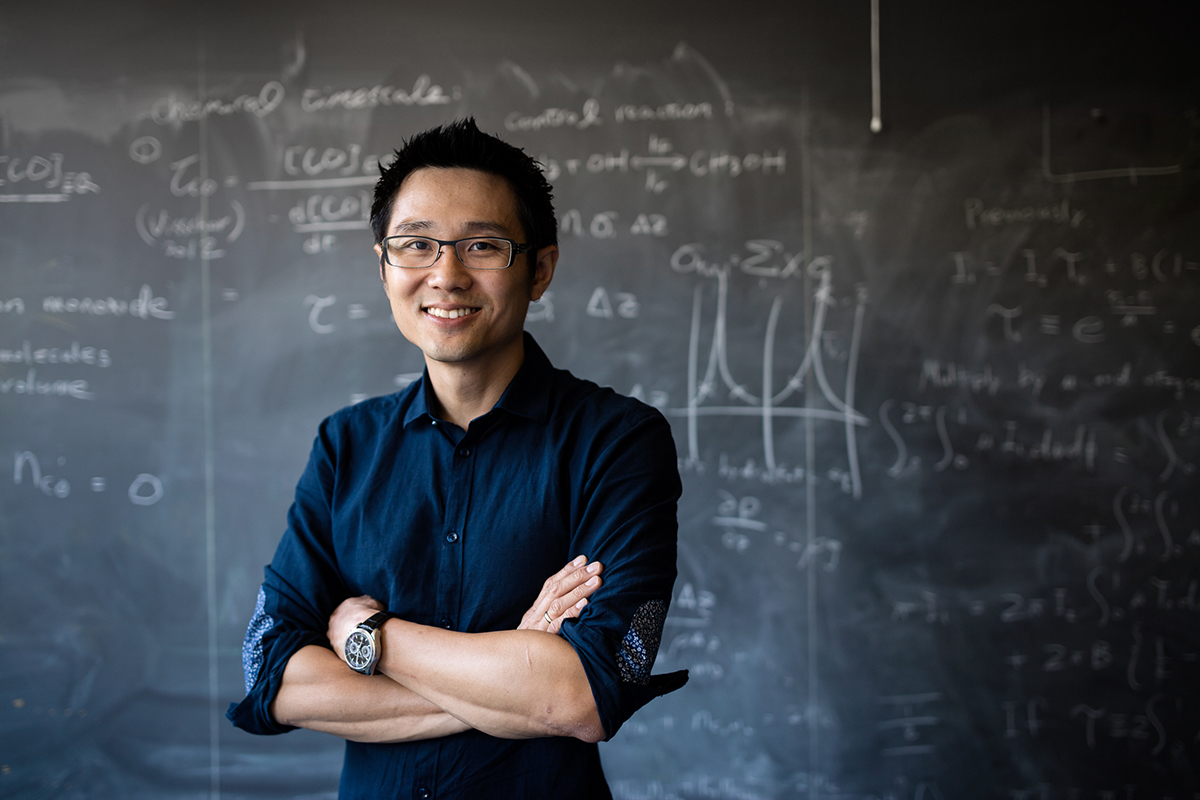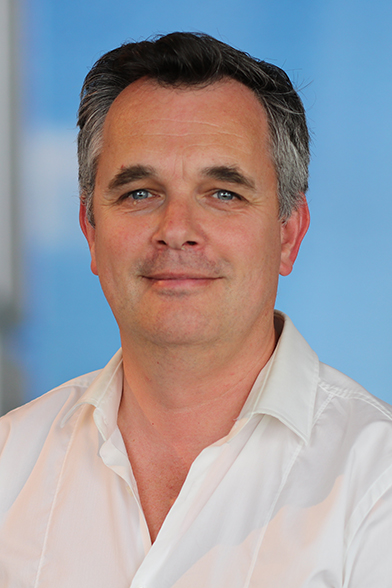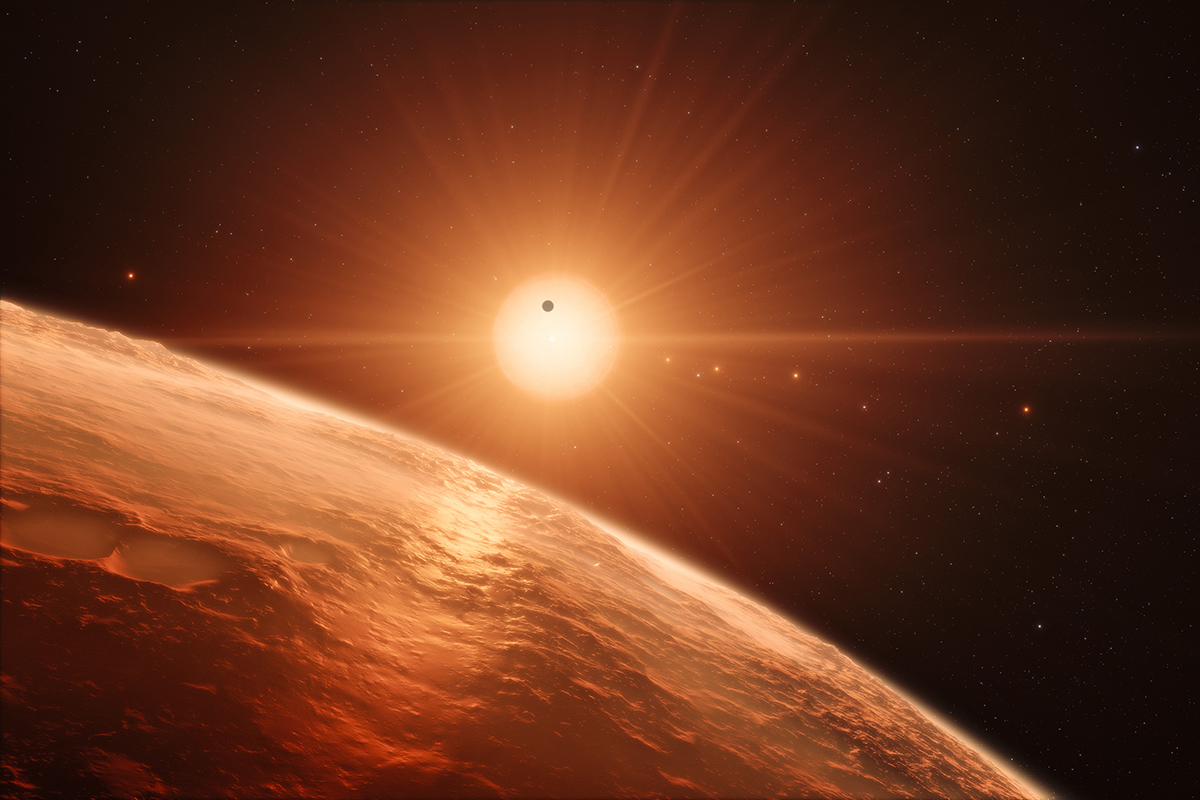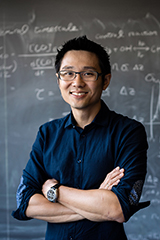Exoplanet Research: A Rising Star of Science
The search for extraterrestrial life in the state-of-the-art space research, and its importance for life on earth: These are the main topics of this year’s Hans Sigrist Symposium due to awarding the Dutch astronomer Ignas Snellen the prestigious Hans Sigrist Prize. Kevin Heng, director of the Center for Space and Habitability (CSH) at the University of Bern, speaks in advance about the top-class conference.
Mr. Heng, what does it mean for you that an exoplanet scientist receives the Hans Sigrist Prize?
Kevin Heng: For the first time in the history of the Hans Sigrist Prize, the field of research being honored is exoplanet science. This is tremendously exciting for me, because it is a young but rapidly growing scientific discipline that is finally gaining recognition. By definition, exoplanet science looks beyond our Solar System to planets around other stars.

Why has Ignas Snellen been proposed and chosen as the award winner?
Since even the nearest exoplanet is many light years away, the only way we can probe conditions on them is via measuring signals associated with their atmospheres. Ignas Snellen is one of the pioneers in these "remote sensing" techniques. He was the first to demonstrate that molecules can be robustly identified using state-of-the-art telescopes from the ground. He is one of the leaders of the next phase of exoplanet science: now that we can detect exoplanets, we really want to know what their conditions are. Snellen's research paves the way for the detection of biosignatures (signs of biology) from exoplanets in the future.

Michel Mayor was intended to be a speaker at the symposium but cannot come because he travels to Stockholm to receive the Nobel Prize. What does the Nobel Prize imply for exoplanet research?
It is timely recognition that exoplanet science is a distinct field of research on its own, different from planetary science (which studies objects only within our Solar System). That Michel Mayor and Didier Queloz are being honored with the Nobel Prize is recognition of Switzerland's leadership in this discipline. On a personal note, Michel and Didier were my inspiration for coming to Switzerland.
Professor Raphael Sznitman will also speak at the Hans Sigrist Symposium. As the director of the ARTORG Center for Biomedical Engineering Research at the University of Bern he talks about medicine in the age of artificial intelligence. What does exoplanet research have to do with medicine and artificial intelligence?
You will have to listen to Brice-Olivier Demory and Raphael Sznitman during the Hans Sigrist Symposium [program see below]. What I will say is that scientific disciplines that often seem different to non-experts actually have a lot in common in terms of techniques and ideas. Society should view research like an investment portfolio: make investments not just in short-term “useful” science, but also long-term "useless" science as well, because it is often unpredictable how these different disciplines will interact with and influence each other.

This is also a subject matter in your own talk at the Hans Sigrist Symposium "On Abraham Flexner’s The Usefulness of Useless Science". Will you tell us a little more in advance?
The "useless science" of today is often the game-changing technology of tomorrow. For example, when James Clerk Maxwell was developing his ideas about electricity, they were dismissed for being "useless". Flexner makes the point that the most impactful type of research is driven by curiosity with no transaction, profit or commercial gain in mind. I will discuss the history of these ideas and what led Flexner to become the founding director of the world-renowned Institute for Advanced Study (IAS). I had the privilege to spend 3 years at the IAS, which had a deep influence on my ideas on scholarship, research and science management.
How do these experiences affect your leadership of the Center for Space and Habitability?
My leadership style as director of the Center for Space and Habitability (CSH) is captured by quotes from two previous directors of the IAS. J.R. Oppenheimer, who was also known as the "father of the atomic bomb", said: "Whatever we do not know, we teach one another." Peter Goddard said: "We do everything in our power to make sure that you have no excuse not to do anything interesting." You asked me what distinguishes the CSH from other research centers? It is my belief that constant interaction between scholars free to satisfy their own curiosity, across the often artificial barriers of different disciplines, is what leads to ground-breaking ideas. My job as director is to shield my researchers from administrative burdens and grant them intellectual independence, so that they may realise their full potential.
Hans-Sigrist-Prize and Hans Sigrist Symposium
Each year, the Hans Sigrist Foundation Board decides the field of the prize from a selection of proposals, from which an internationally-compiled expert committee nominates candidates worldwide. This year’s prize committee was led by Prof. Dr. Kevin Heng from the Center of Space and Habitability. The Hans Sigrist Foundation Board makes the final decision regarding the award. Prize winners can use the prize money (100,000 CHF) to fund further their research.
The Hans Sigrist Symposium, which is taking place on Friday, December 6, 2019, is to address the topic of exoplanet research. The occasion coincides with the presentation of the prestigious Prize of the Hans Sigrist Foundation, which is based at the University of Bern, to the Dutch Astronomer, Prof. Dr. Ignas Snellen. The keynote speech by Ignas Snellen is entitled "The Search for Extraterrestrial Life".
Award winners receive the prize at the University's Dies academicus ceremony, which takes place the day after the symposium each year. This year’s dies academicus takes place on Saturday, December 7, 2019, 10 a.m. in the Casino Bern (Casinoplatz 1, 3011 Bern). The media invitation for the Dies academicus is to follow shortly.
About Kevin Heng

Prof. Dr. Kevin Heng (41) is an astrophysicist and director of the Center for Space and Habitability (CSH), the leading interdisciplinary space research center of the University of Bern. He is a core science team member of the CHEOPS space mission of ESA, a project leader of the PlanetS National Center of Competence in Research (NCCR), and a co-founder of the Exoplanets conference series together with Didier Queloz.
Contact information
Prof. Dr. Kevin Heng
Center for Space and Habitability (CSH)
Gesellschaftsstrasse 6, 3012 Bern
Phone: +41 31 631 59 18
Email: kevin.heng@csh.unibe.ch
About the author
Nina Jacobshagen is Editor Corporate Publishing of the Communication and Marketing Office of the University of Bern.